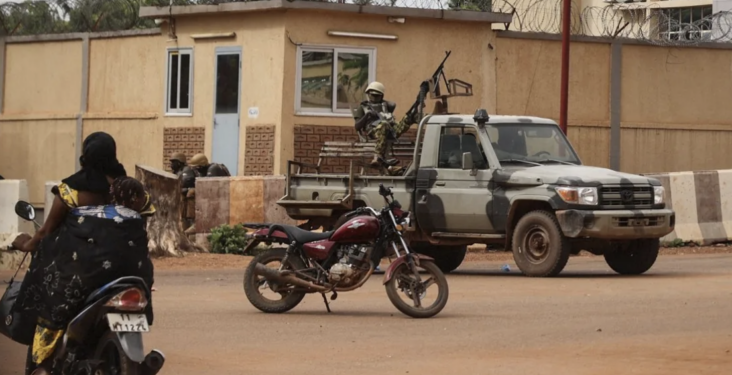In the past three years, some spots of the Sahel region have become a hotbed of extremist, terrorist and fundamentalist disturbance. It has been fraught with multiple coups within short intervals as well as trafficking and jihadist insurgency.
There are a few democratic oases, such as Nigeria, nestled within the turbulence of the region. Still, the majority of the Sahel has been taken over and ruled by military authorities. Democracy has been toppled in Burkina Faso, Mali, and Niger – with attempts in Chad. In just three years, the region has seen eight coups, further exacerbating the already volatile security situation in that part of Africa. Those at the helm now are strong men willing to crush everything and anything that stands in their way – and alas, the festering terrorism, extremism, and Islamic fundamentalism in the region have become opportune guises to trample the fundamental human rights of ordinary citizens and opposing voices to keep a firm grip on the helms of those countries.
The volatile security situation in the region is the new, and, it appears, the perfect excuse to keep everyone and everything in check. Scapegoating terrorism, extremism, and Islamic fundamentalism just to strangulate democracy has become commonplace in the region.
Journalists are under the close watch of the military authorities, for example. And such ‘Big Brother’ monitoring, of course, is inevitable to keep the current status quo since it is only the power of the pen and microphone that can magnify dissenting voices and views.
So, gagging and crushing the media are very necessary to the army authorities if they are to succeed in hushing all voices apart from theirs. The authorities see any other viewpoint apart from theirs, as unpatriotic and diversionary.
Everyone needs to be whipped in line with their version of patriotism and national security, especially if they are to succeed in yanking out terrorists within the region.
In their view, it’s either autocracy – which they sadly interpret as patriotism; or terrorism wins. Democracy has no place in that ‘either or’ conundrum. In fact, to them, democracy is a distraction.
But just like in the US, Europe, and even some democratic African countries such as Ghana and Nigeria, it is evident that democracy, in and of itself, is a very potent counterterrorism tool. It facilitates economic growth, prosperity, job creation, and boundless opportunities for the youth.
These give them a useful purpose in life. Having a good purpose in life reduces the risk of unemployed youth finding terrorism cells attractive. It makes them value living more than suicide bombing, for instance. Good education opportunities for Muslim communities, for instance, can make Muslim youth question and challenge extremist and fundamentalist indoctrination through potent logical reasoning. Such educated youth would thus help fight terrorism by being dissuading voices and helping to neutralise the toxic indoctrination of extremist and fundamentalist imams within Muslim communities.
Democracy and counterterrorism have a symbiosis. Free media and guaranteed freedom of expression, for example, would encourage ordinary citizens to ‘say something’ when they ‘see something’ as part of helping the government to counter terrorism, extremism, and fundamentalism as pertains in Ghana under the ‘See Something, Say Something’ government initiative.
Helping the government fight terrorism is in the interest of both the government and the citizenry since terrorists can strike either of them at any time and anywhere without discrimination.
The 9/11 terrorism attack by al-Qaeda in the US, for instance, targeted and killed mostly ordinary citizens who were just going about their usual business on that fateful day.
The partnership between democracy and counterterrorism became even more evident in Nigeria when President Muhammadu Buhari, to a large extent, neutralised the potency of Boko Haram in northern Nigeria and even succeeded in rescuing most of the Chibok girls who were captured and taken hostage by the anti-education fundamentalist and extremist group.
It is so clear that democracy and counterterrorism are bedfellows rather than enemies. One needn’t be snuffed out for the other to thrive. Therefore, using counterterrorism as an excuse to suppress democracy seems more suspicious than altruistic.
Source: CISA Analyst






























